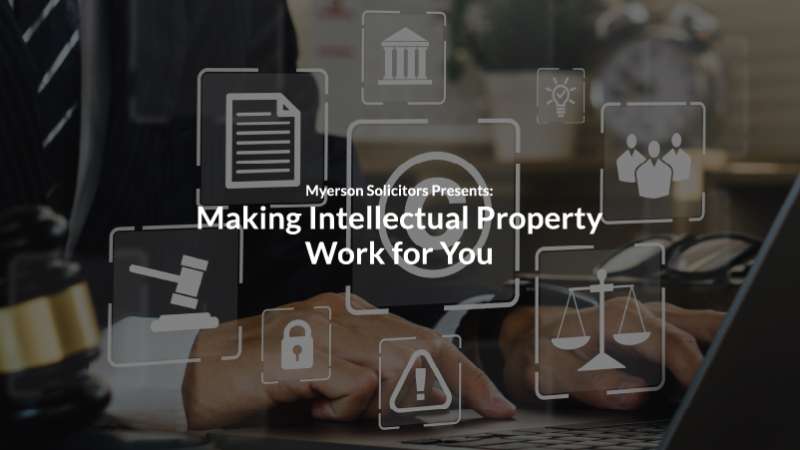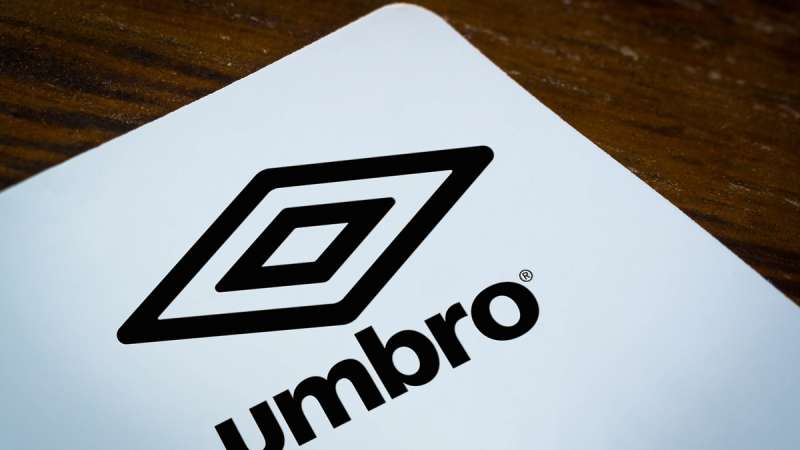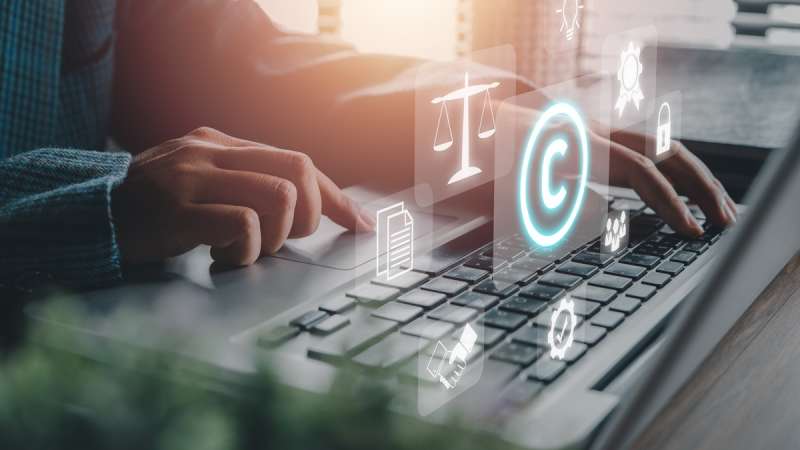Our Intellectual Property Protection Service
Protecting intellectual property (IP) is crucial for maintaining a competitive edge and fostering innovation within your business.
Whether it's a unique product design, proprietary software, or a brand name, securing your IP safeguards your investment in research and development, enhances the value of your company, and creates a barrier to entry for competitors.
Myerson's intellectual property solicitors can provide invaluable assistance in this endeavour.
Your dedicated intellectual property lawyer can guide you through the complexities of IP law, helping you understand how to protect intellectual property—be it through patents, copyrights, trademarks, design rights, IP audits or trade secrets.
Our IP solicitors are well versed in key areas, such as domain name disputes, passing off claims and misuse of confidential information.
Our intellectual property lawyers can also draft and review contracts to ensure that your intellectual property rights are adequately covered in business agreements, consult on compliance with international laws, and represent you in cases of intellectual property infringement.
Our Experience with Protecting Intellectual Property
Our intellectual property protection solicitors have broad experience in commercial contracts and collaborate with our employment and litigation teams for comprehensive IP support.
Our intellectual property solicitors offer business-focused advice on various facets of intellectual property protection, tailored to meet the unique needs and complexities of each company.
Our specialist intellectual property lawyers have knowledge of both domestic and international IP laws, helping businesses navigate cross-border issues effectively.
Moreover, we can draft and review contracts, including non-disclosure agreements and licensing agreements, to secure your IP in commercial transactions.
Our expertise also extends to litigation support in cases of intellectual property infringement, providing strategic legal counsel to defend your rights effectively.
Intellectual Property Rights
Our IP lawyers can help advise on the following intellectual property rights and matters:
- IP Audits – undertaking IP Audits.
- Computer Programs & Software - Both source code and object code are crucial parts of a software program. However, design rights, patents, and trademarks can apply to software interfaces and brand elements as well. It's therefore imperative to protect the IP in your programs, Apps, platforms and interfaces, including through your contractual arrangements, not only with your employees, your clients and any third-party suppliers or subcontractors your business engages with;
- Copyright – advising on what constitutes copyright works, how to protect such works and commercially exploit them in a measured manner;
- Confidential Information and Trade Secrets – assisting your business in ensuring it has appropriate protections in place to safeguard such information, including NDAs and confidentiality undertakings in its contracts.
- Database Rights, Patents, Trade Marks – advising on the nature of the same and how to protect such rights;
- Sale and Assignments of IP;
- Escrow Agreements - For safeguarding source code in business partnerships, escrow agreements are common. These outline conditions for code access and the duties of involved parties.
- Employees: who owns IP
- Employees and the protection of IP
Our Approach to Intellectual Property Protection
Our specialist IT and IP lawyers have many years of experience advising businesses with their intellectual property issues, especially in the context of IT / technology.
Our teams of IT and intellectual property solicitors are described in the independent Legal 500 directory as "an invaluable partner in assisting in a wide range of commercial contracts by providing a comprehensive and first-rate service."
In addition, Partners in our team are recommended by the Legal 500. Therefore, you can be reassured that you will deal with some of the best Commercial solicitors in the country.
We are members of the Intellectual Property Lawyers Association (ILPA). The ILPA is an association of 66 law firms that have an established intellectual property department.
Recent examples of our work in intellectual property law include:
- regularly advising a software house in the insurance industry on confidentiality agreements;
- drafting a collaboration agreement for the development of platform software to be integrated with websites and portals, advising an IP ownership and escrow requirements;
- drafting an assignment of IPRs for software used within EPOS systems developed by a consultant;
- drafting an escrow agreement for a software consultant;
- advising a software developer on the assignment of its intellectual property rights in software to a third-party purchaser;
- advising software houses on their contracts of employment.
Why Choose Our Intellectual Property Solicitors?
- Our intellectual property experts advise clients on a broad range of intellectual property matters, from initial registration and exploitation to protection and enforcement.
- Our specialist IP litigation team is also highly experienced in handling business disputes involving intellectual property.
- Myerson is a member of the Intellectual Property Lawyers Association (IPLA), an association of law firms with an established intellectual property office. Our membership provides our clients and us with access to a wealth of knowledge and expertise in intellectual property.
- Through our many years of service, we have close working relationships with trade mark and patent attorneys and regularly liaise with them on a wide range of intellectual property issues, such as registering trademarks, patents and design rights, and when disputes arise concerning intellectual property rights. These working relationships are a key element of the service we offer to our clients.
- Myerson is also the Manchester and Cheshire law firm member for the MSI Global Alliance, a top 20 ranked international association of independent professional firms. As the IP matters we deal with often involve an international element, we can call upon the expertise and knowledge of our fellow MSI members to ensure that our client's global interests are protected.
Intellectual Property Rights: A Guide for Employees and Employers
- Patents - Patents offer legal protection to inventors. Typically, an employer owns a patent if the invention is created during an employee's regular or assigned duties. Employees can't transfer rights to unmade inventions, but employment contracts should clarify patent ownership. If in doubt, employers should seek written consent from the employee post-creation.
- Employee Compensation - Employees could be entitled to compensation if their patented inventions significantly benefit the employer.
- International Context - UK patent laws apply to employees primarily based in the UK. Local laws dictate rights for employees mainly working outside the UK.
- Consultants - Consultants usually own the intellectual property they create unless otherwise specified.
- Copyright - The employer usually owns copyright for works created by employees during employment unless otherwise agreed. For consultants, a written assignment is required to transfer copyright ownership.
- Moral Rights - Creators have non-transferable moral rights in their works, which can be waived in writing.
- Database Rights - Employers own the database rights if the database is created during an employee's regular duties.
- Designs - Employers can own both registered and unregistered designs if created by an employee during work.
- Community Designs - Rights to community-wide design protection generally belong to the employer, except in commissioned designs.
- Trade Marks - Ownership disputes between employers and employees are settled based on evidence of bad faith or prior reputation in the mark.
- Domain Names - If disputed, employers can claim domain names registered by employees through legal procedures, given certain conditions.
- Know-How - While not a traditional IP right, know-how is valuable and should be kept confidential. Legal liability can arise from misuse of confidential information by current or former employees.
Testimonials
Intellectual Property Protection FAQs
What are the requirements for copyright?
To qualify for copyright protection, a work must be original, meaning the author must have created the work through his own skill, judgement and individual effort and must not have copied it from other works.
How long does copyright last?
Copyright will exist for the time it is recorded in writing or otherwise.
Copyright generally lasts 70 years from the end of the calendar year in which the author of the work died.
However, if the work is computer generated, which means it was created by a computer mechanically (not simply created via a computer), the copyright expires 50 years from the end of the calendar year in which the work was made.
Can copyright protect computer programs and Apps?
Copyright is the main form of IP right in software and computer programs. "Computer programs" are included in the Copyrights, Designs and Patents Act 1988 as original literary work capable of copyright.
The benefit of copyright protection is that the owner can make a damages claim against or injunct any third party who has copied the computer programming.
Copyright can also exist in the preparatory design material for computer programs - for instance, flowcharts, graphs and functional or technical specifications, which were created as part of the evolution process in developing a computer program.
What are databases?
Databases are collections of independent works, data or other materials arranged in a systematic or methodical way and individually accessible by electronic or other means.
To be protected by copyright, the database must be deemed original (i.e. by reason of the selection or arrangement of their contents constitutes the author's own intellectual creation).
Database rights last for 15 years from the end of the calendar year in which the making of the database was completed.
If a database fails to meet the requirements for copyright protection, it may still be protected if there has been substantial investment in obtaining, verifying, and presenting the contents.
This would entitle the maker of the database to prevent extraction and re-utilisation of the whole or a substantial part of the contents.
How can an escrow agreement help protect software?
An escrow agreement may need to be implemented by the interested parties when a licensee is to be licensed software from a developer (or owner), and the licensee requires access to the source code in certain circumstances.
In the event that the software owner's business suffers an insolvency event or the developer stops maintaining the software, the terms of the escrow agreement may be triggered, under which the source code is released to the licensee for its continued use and maintenance.
As the escrow agreement is a tripartite agreement between the software owner, the licensee or the user, and an independent escrow agent, the escrow agent will hold the source code in accordance with the terms of the agreement and only allow the licensee access to the code if one of the identified trigger events occurs.
Meet Our Intellectual Property Solicitors
Home-grown or recruited from national, regional or City firms. Our intellectual property lawyers are experts in their fields and respected by their peers.
Contact Our Experts
You can contact our lawyers below if you have any more questions or want more information:






